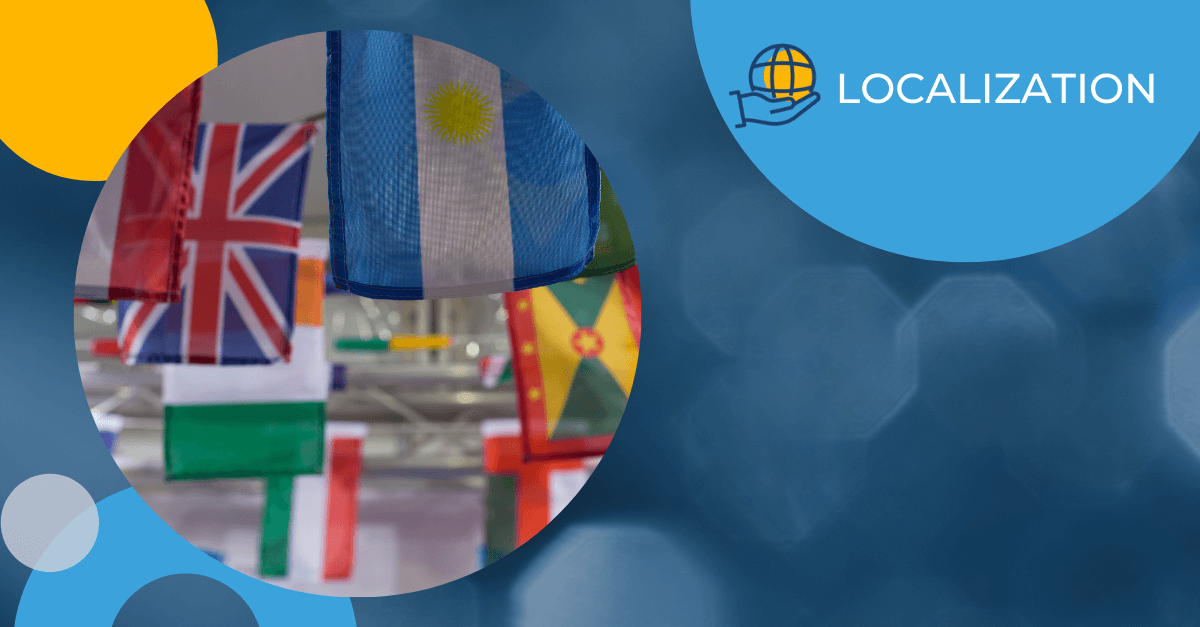Month: January 2015
Translating Breaking News

When international news breaks, the need for translation services to help disseminate urgent information becomes paramount. Immediately after the horrific terror attacks in Paris, one of the major 24-hour newschannels called on Morningside to provide onsite language services in the newsroom to aid in live translations of incoming news reports from France.
Morningside understood the urgency and importance of this project, as well as our great responsibility to provide the most highly qualified linguists with impeccable communication skills and the ability to work quickly in a high-pressure environment. We sprang into action, providing a highly qualified French to English interpreter on-site within the hour and then quickly assembling a team of highly experienced French to English linguists to provide round-the-clock interpretation services as the story progressed for more than 5 days straight.
Our translators and interpreters worked directly in the newsroom watching and translating the latest news reports from French TV and even providing over the phone (OPI) interpretation services on phone calls to Paris city officials.
In addition, our project and account managers were on-call 24 hours a day to ensure a seamless transition from one linguist to the next on-site and prevent any gaps in French language support for our client.
Having translators and interpreters in the newsroom helped ensure that breaking news and any follow-up was immediately translated and analyzed and provided a rapid turnaround to broadcast news to local audiences.
Headquartered in New York, the ‘city that never sleeps,’ this was not the first time that Morningside has partnered with leading news organizations in NYC and around the world to provide language support services during breaking news events. These language services have included around-the-clock on-site interpretation, both sight translations and expedited translations, foreign news and media outlet monitoring, and off-site support through on-demand.
We are proud of the language support services we were able to provide during those difficult days, and our thoughts and prayers go out to the families of those who lost loved ones in France.
Get the latest insights delivered to your inbox
How to Select a Qualified Translator

When looking for a qualified translator service, you need to find someone you can count on for professional, accurate work. Whether you are translating documents, legal documents, websites or other written content, it is important to know your translated document is something you can count on. In today’s globalized society, translation is increasingly important for effective business communications. Having a highly qualified translator for document translation service is integral to the success of your business.
Why Is a Professional Translation Company Important?
There are many ways to translate documents. Maybe you have a qualified translator in the house with the requisite language skills, maybe you hire a freelancer or maybe you look to a professional translation company for help. Though all three may serve your translation needs, it is important to find a highly skilled and professional qualified translator to ensure accuracy. You want to make sure your message or documents are communicated clearly with the intended meaning and tone you desire. This is best achieved through a certified translation service.
A qualified translator not only gets the correct words down on the page but also produces excellent results. They get across not only the words but also the tone and meaning of the document or written work. Language and communication are complex, and a certified translator should be able to convey exactly what you are looking for.
Different Translation Methods
When you need translation services, there are several different possibilities on who to hire based on the needs of you or your company. You can have an in-house translation department, hire a freelance translator or hire a professional translation company. There are benefits to each method.

-
In-House Translation
One option in translation services is to hire an in-house translator as part of your staff. This person will be part of your office and work only on translating for your company. A benefit of this type of translation is that an in-house translator can be very familiar with the specifics of your company. They will know the specific projects, teams and departments that they are translating for. Having someone that’s deeply familiar with your company is a huge plus.
A drawback to having in-house translation services is that there may be high associated costs. In addition to paying the full-time salary of your translator, you will also need to purchase translation tools and train staff to use them. The costs will increase if you require translation of several languages. Supporting multiple languages requires more staff and resources, increasing costs of translation services.
This may be a good option for you if you have the funds to pay for the high initial investment costs and resources to hire and train translation staff. In addition, it is best if you have a high volume of translation needs in a specific language. However, the costs may be too high for many.
-
Freelance Translators
A second option for hiring translators is to rely on freelance workers. These contractors may be based anywhere in the world thanks to the Internet. There are many freelance translators available that can be found online.
Freelance translation often provides the lowest cost option. You avoid the overhead costs associated with having an in-house translator or hiring a translation service. You will only need to pay specifically for your translation needs and will avoid extra costs.
However, working with freelance translators presents significant challenges not present when hiring in-house or using a professional translation services company. Freelance translators likely have several clients, so your work may not always take priority. Turnaround times for translation may be slower than in other methods. In addition, quality may vary and be inconsistent across different translators. It may be difficult to find a translator at the professional level required.
This may be a good option for you if you have someone dedicated to managing the challenges associated with freelance translation. You will need someone who can provide quality control for the documents. If you have translation needs in multiple languages, but not in high volumes, this may be a better option than hiring an in-house translator.
-
Professional Translation Company
The third option for filling your translation needs is to hire a professional translation service provider. This is a company that specializes in translation. A professional translation company can provide industry-specific translations and translations into multiple languages.
A professional translation company will provide many advantages. Outsourcing the responsibility of translation will take pressure on your office staff. They will be able to provide a high-quality translation specific to your industry’s needs. In addition, a translation services company will have the best availability and consistent turnaround times.
The benefit of a professional translation services company is that they have established processes for translation. An established company knows what works best and has the knowledge to provide high-quality translations. Since they are focused on translation specifically, they are experts that can give you the best quality product available.
Translation companies may have higher costs than freelance contractors. However, this is due to the level of management and quality control present in a professional translation. This level of accuracy and quality cannot be controlled with cheaper freelance options. As such, a translation company is usually the best option to ensure that translation meets your needs.
What Are the Qualities of a Great Professional Translation Company?

If you’ve chosen to go with a professional translation company, you then have to choose the right company for your needs. There are different translation companies available and it may be difficult to tell what companies or translators offer the high level of translation that you are looking for. What makes one translation company better than another?
There are several indicators that a company you are looking at is a certified translation service that you should hire. When choosing a translation company, look into these six indicators: certification, language experience, industry expertise, references, availability and value. Paying attention to these six factors will help you pick the translation company that is right for you.
1. Certification
Assuring quality in a translation can be difficult. Luckily, there is a certification designation that helps ensure you pick a qualified company. Work with an ISO-certified translation company in order to get the best results. ISO is the International Organization for Standardization, an independent organization that develops standards for quality. Standards are developed by reaching a consensus among the people that need them. One of the services that the ISO certifies is translation.
When looking at translation services, look for a company that is ISO certified. This should be displayed on their website or materials. Ask if the company is ISO certified before you hire.
2. Language Experience
Before choosing a translator, consider their language experience. The best translators have fluency in both languages – the one you are translating from and the one you are translating to. The best translators are often native speakers. Before hiring a company, look at the quality of their translators in the languages you need.
You may have translation needs in several languages. Hiring a translation company that can meet your needs in all your languages will ensure an easier and more consistent process. Make sure the company has high-quality translators available in all languages you need.
3. Industry Expertise
Another key element to choosing a high-quality translator is finding someone who is familiar with your industry. Just because someone is fluent in both languages does not mean that they are familiar with all the technical terminology of your industry. Each industry, be it legal, financial or science, has its own set of terminology and jargon.
Choose a translation company that meets your specific industry’s needs. Each translation company may specialize in and be equipped to handle translation from different industries. For example, Morningside Translations serves the following primary industries: life sciences, legal, financial, manufacturing, consumer products, government, nonprofits, labor and employment, electronics, energy, and media and entertainment.
If a company that you are considering does not have experience working in your industry, it is probably not the best choice for accurate translations. Your best option is to go with a company that has specific experience working with the kind of documents you need to be translated. This way they will be familiar with the terminology and jargon of your documents.
A company with industry-specific experience will also be familiar with the tone needed in different kinds of documents. Is the tone more formal or casual? Who is the document meant to address? A qualified translator with industry experience will know how to address the reader and who the reader is. These qualities are central to having a great translation.
4. Get References
A great way to help determine the quality of a translation service is to look at their references. Check out the references or testimonials available on the translation service’s website. Are they from reputable individuals or companies?
If you know someone who has used translation services in the past, be sure to get personal recommendations. If someone was not happy, what did they feel their service was missing? This can help you hone in on the pros and cons of a company.
Longevity can also help determine if a translation company is right for you. An experienced company that has been around for a while indicates customer satisfaction. In order for a company to succeed, the customers have to keep coming. If a company has been around for a while, this may indicate a high-quality service.
5. Availability
Think about your translation needs. How quickly do you need your documents back and translated? Sometimes you may be pressed for time and need your documents translated on short notice. You need someone you can count on to return your translations quickly and on deadline.
In order to ensure this, look for a translation company that operates 24/7 and can process new requests at any time of the day or week. The problem with hiring individual translators is that you are bound by their schedule and availability. One individual cannot be available at all hours. They may be busy with other projects or on vacation.
A translation company that has many translators and high availability is the best choice to ensure your translation needs are met. Before you hire a translation service, check their hours and availability. Check how many translators they have available. Check what type of turnaround times you can expect. If you are equipped with this knowledge, you will be able to make an informed choice and pick translation services that are right for you.
6. Value
Let’s not forget value when we are talking about picking a great translation service. Having high-quality translations with great turnaround times is a valuable service that is well worth the cost. Once you have ensured the translation company you are looking into meets all your needs, you can compare and contrast services for price and value.
Having a high-quality translator may at first seem costly. However, in the long term, it will be more costly to your business to have poorly documented translation. A poor translation can scare away potential customers or clients. It can prevent you from expanding into the globalized economy. High-quality translation can improve your business prospects.
A high-quality translation service will provide a competitive quote for your translation that meets your needs and requirements. If you receive a low-ball quote from a translation service, make sure that the service is able to meet all your needs and provide the translation services you need.
Choosing a Translation Service

If you pay attention to these six factors, you can get the kind of translation that meets your needs and propels your business forward. Having a highly qualified translator can take your business to the next level.
In this increasingly globalized economy, translation services are more important than ever. Your clients, customers or business partners may be located in different parts of the world and speak different languages. Without a high-quality translation service, it can be difficult to communicate effectively and have accurate document translation.
Luckily, professional translation services are available to help your company meet its industry-specific needs. Whether you have legal, scientific, entertainment or other industry-specific documents that need to be translated, Morningside Translations can provide translations that meet your needs. We are the industry leader in translation solutions worldwide. We can provide the accurate, efficient, industry-specific translations needed to help your business succeed.
You can count on Morningside to provide all the services you need, including a qualified translator for your next project. Providing translation services in more than 200 languages and in a wide range of industries, we can fulfill your translation needs. Browse through our website to see the types of services we provide and the industries we serve. We can provide a free quote to start your project. To find out more about Morningside Translations, contact us today.
Get the latest insights delivered to your inbox
Is Your Website Still Only in English?

Localization is about more than just entering a new market – it is about embracing the unique elements that make that unique market special and important. When a business engages an audience on a level that places its specific context at the forefront, they are showing a commitment to building the foundation necessary to provide the highest quality service or product for that market. When a business treats its new market like an afterthought, it can be sure that this market will reciprocate in kind.
Today, the internet has become the primary method of communication in the global economy, enabling cross-border connections at an unprecedented level and making localization an even greater priority. Research shows that 52.4% of foreign market consumers won’t buy from websites that are not in their language[1], and 72.1% of international customers spend most of their time on sites in their own language[2]. Even people who feel comfortable in the English language prefer to buy in their own language. 90% of Japanese respondents, 74% of French-speaking Canadians, 79.5% of Germans, 82.5% of Italians, 65% of Dutch respondents would rather buy in their native language[3].
These numbers reflect a wider trend where consumers worldwide are increasingly expecting a higher degree of personalization. It isn’t just about the ease of use, though this is certainly a key factor. Having the information in the language that a user speaks tells each customer that they are important and valuable to the brand. When you don’t take the time to translate your site, you are inherently saying that these languages and the markets where these languages are predominantly spoken are of lesser importance to you. A customer that feels that they are of lesser importance, is certainly less likely to utilize your service or buy your product. Customer satisfaction is key to successful business which is why Morningside puts a key emphasis on localization.
Despite our increasingly interconnected world, language remains a significant obstacle when trying to reach an international audience with your website. To achieve a true global reach, the largest and most successful companies are translating their website into multiple languages and localizing their message to each specific target audience. The bottom line is if your website is still in English only, make 2015 the year that you take your product or service global.
Get the latest insights delivered to your inbox
5 Tips to Lower Translation Costs in 2015

The holidays are always stressful, but many companies are still figuring out next year’s budget and re-examining ways to lower costs in 2015. In our “news you can use” section, here are 5 tips for lowering your translation costs in 2015:
1. Translate only into those languages that are widely used
You can reach 84% of global Internet users by translating your English website into just 9 languages. (You can reach 71% by translating into only five languages.) The numbers are similar for software and mobile apps. If you are targeting a global audience and don’t have a particular region in your sights, a great way to lower translation costs is to focus on the most widely used languages and skip the rest.
2. Request conversions
Many document translation projects involve translating content into languages that are very similar. For example, Canadian French and European French, or Latin American Spanish and European Spanish. The main differences between the languages listed above relate to word choice, spelling, and punctuation. To save money, you don’t need to translate the document into both languages-instead ask your translation partner to edit or “convert” the translation into the other language. Editing/revising an existing translation is far less expensive than ordering a new one.
3. Reduce word count of the source document
If possible, review your source files to see if any content can be edited out or doesn’t require translation. Most translation companies charge by the word, so eliminating unnecessary words can make a big difference. Even if the content was critical in the original version, it might not be relevant to a foreign-language audience. For example, not every word of marketing content requires translation.
4. Finalize text before requesting translation
Unless it’s absolutely necessary, make sure that content is completed and approved before submitting it for translation. Changing copy in the middle of a translation project not only adds time but can also increase cost, especially if the previous version has already been translated and now needs to be re-translated. If you do need to make changes after initiating a project, send them to your translation partner as quickly as possible.
5. Allow sufficient turnaround time
Sometimes last-minute translations can’t be avoided, but whenever possible give your translation company enough time to complete your translation project at standard turnaround. Rush turnaround usually means rush fees, and the shorter the turnaround, the higher the rush surcharge.

